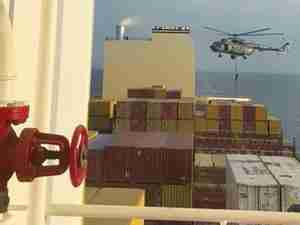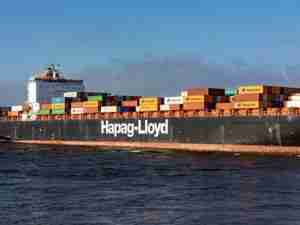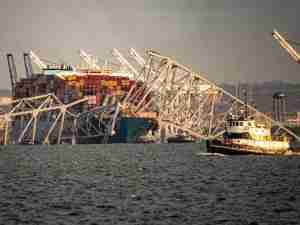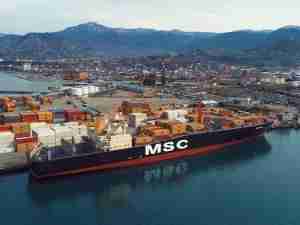Why the Jones Act matters by John Ingold
posted by AJOT | Feb 16 2015 at 09:25 AM | Liner Shipping
In response to the recent opinion piece by the Heritage Foundation’s Bryan Riley (Feb. 6, 2015), the Jones Act is critical to our economy and security by keeping our ship building capacity operational and ensuring our sailors are qualified and competent to navigate safely on U.S. vessels and waterways. But the Act reaches further than this as well.
Our armed forces rely on the support of the U.S. Merchant Mariners who work on Military Sealift Command vessels. Many sailors in our industry work in the government division full time in support of the military. The rest of the civilian mariners qualified for vessels work in the private commercial fleet. Part of our commitment as a U.S. Merchant Mariner is the commitment to the United States in times of war. In times of large conflict, more ships need to be called out to transport our supplies and to maintain our naval fleets. As a benefit for maintaining our own base of high-quality mariners, our commercial fleet of sailors can be called upon to man those ships when we need them the most. You may have never heard of us, but we have always been there for our country when we are needed. If we lost the Jones Act, not only would our economy be outsourced, we would jeopardize our military’s ability to operate in threatening waters with foreign crews operating our vessels.
This industry gave me the opportunity to educate and employ myself at the cost of hard work and dedication. In return, we help ensure the security that our service men and women operating overseas work for, and we provide qualified manpower in the industry supporting them when and wherever needed. My first opportunity came in 2010, when I sailed on the M/V Alliance Norfolk for 128 days. I sailed from the U.S. Eastern Seaboard in support of war efforts in the Middle East. On this route, it required us to sail through the pirated waters of the Red Sea and the Gulf of Aden into some potentially dangerous ports such as Iraq and Yemen. Standing pirate watch was a unique experience to say the least. Without a doubt though, the security I felt on that vessel working with the professional crew reinforced my belief that we were ready for whatever came at us. Our company brought on a professional group of individuals to secure our safety in hot waters. Our crew had emergency plans that we regularly rehearsed to ensure we would work as a unit in potential situations. We were ready to handle the situations we needed to because the Jones Act made sure that the United States Merchant Marine is always ready to rise to the challenge.
Our democratic system has repeatedly shown us how a range of opinions can slow our elective government’s ability to operate. From national security to the economic benefits our country gains, we should all be able to find common ground on why the Jones Act matters to us. My story is just one of the countless stories of Americans all over who have been able earn to earn the opportunity to succeed from this industry. Ensuring our ship builders and shipping operators are not outsourced also ensures our values as Americans.
The belief that success will be rewarded to those who overcome the challenges and obstacles in their lives is something that we all believe in as Americans. This industry still sustains these uniquely American beliefs by providing economic opportunities to all regardless of gender, race, or creed, while also providing a critical benefit to our country’s national and homeland security. It is no wonder that the industry is so attractive to our veterans – the Jones Act and American maritime provide them with another way to serve our nation after they leave the military. The Jones Act has given America much benefit, and we must continue to protect it for our future generations.
Ingold is a U.S. merchant mariner from Green Bay, Wisconsin.









